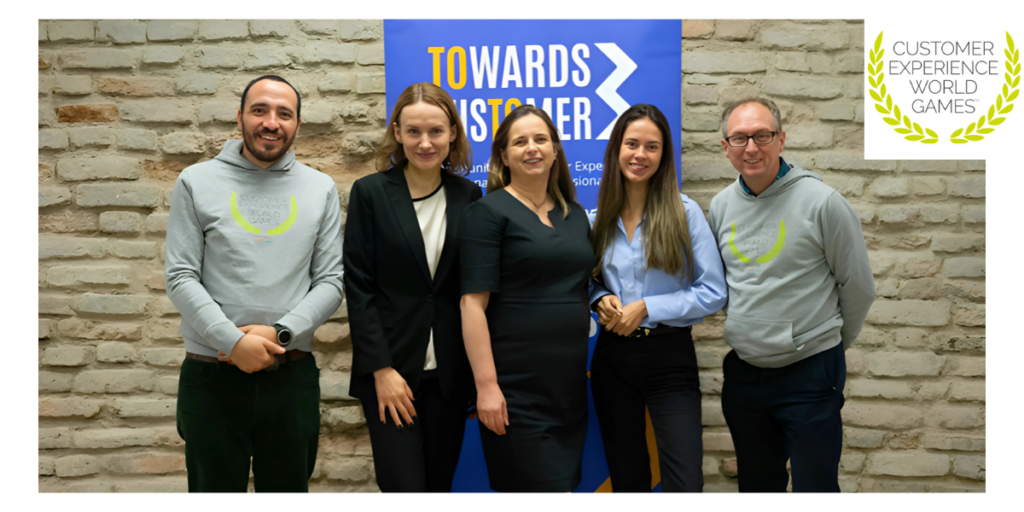4th Feb 2020
The luxury travel sector is under pressure to push the boundaries for customer experience. We spoke to director of marketing, Marie-Laure Blaise to discuss Marriott International’s approach.
There are few industries where the minutiae of a customers’ end-to-end journey is under the microscope like it is in the luxury travel market. From the early research phase of the online journey through to the hotel guest experience, perfection is an expectation.
Having worked in the sector for over a decade – first with Radisson Group and currently with Marriott International in Mauritius, as director of marketing – Marie-Laure Blaise has a unique view of the role CX plays within luxury travel. We spoke to her about how Marriott International approaches experience, and how it’s able to consistently meet its customers’ high expectations.
Christopher Brooks: The luxury travel destination sector is one where there’s constant pressure from brands to improve CX. How important is guest experience to Marriott International’s success?
Marie-Laure Blaise: Like all groups, we want to remain differentiated by experience. To provide some context, the Marriott International now includes over 30 distinctive brands around the world. So there is a need to separate the brands and define the guest experience precisely, for the sake of differentiation. The more details you can define, the easier guests can select one brand or another without cannibalisation.
What’s really important is we have brand pillars. These inject elements to the brand experience. They are very distinctive. For example, Westin Hotels’ six pillars are focused on a ‘let us rise’ motto connected to wellness and wellbeing.
CB: What are your key responsibilities and how much influence do you have on the regional guest experience programme?
MLB: Ultimately, our responsibility is to interpret these assets to make sure you localise and showcase them, whilst creating consistency at a global level. We need to ensure we can amplify our guest stories through online and print media. For example, through the creation of Marriott Bonvoy Moments (inherited from Starwood Moments) – which is basically a money-can’t-buy type of experience. Members are bidding their loyalty points for exceptional experiences throughout the world.
Working in the hotel means having a direct influence on guest satisfaction. I’m charged with ensuring that the key brand differentiators are showcased in the most effective way, and that our specific brand standards are met.
CB: Your destination is one of the world’s most desirable. Add in the Marriott brand and this must create a huge expectation from your guests. Are expectations of the guest experience high?
MLB: To be honest, guest expectations are high whether it’s Sri Lanka, the Maldives or Mauritius, traveling on business or for pleasure. I must say that Mauritians are experts in hospitality and therefore thanks to their multilingual skills and professionalism, even guests with high expectations are satisfied.
It is a long-haul destination. This is where service needs to be as the central point for any guest recovery. What also helps is that resort stays are rather long, which makes it easier for service recovery.
CB: You must need to be very responsive to guests’ requirements in real-time. Does the day-to-day needs of guests influence choices made regarding the long-term experience and marketing focus of the brand?
MLB: Yes, it is an ‘always on’ improvement process. Guests have helped shape the long-term marketing strategy. As a matter of fact, guest feedback is indeed replied back within hours and staff informed of any requests. As one can expect, any valuable and valid guests’ concerns are subject to discussion with the operational team, especially during our morning meetings, which take place on a daily basis.
As an example – A St. Regis Mauritius guest once said that his first impression of the resort was as inspired as ‘Art de Vivre’ which means ‘Art of Living’. We are now using this hotel positioning in our commercial pitches to describe the guest experience.
CB: You are part of a worldwide recognisable brand. Do you look to apply the same brand experience standards in Mauritius that I may find in Marriott International in Mexico City, Melbourne, Mexico City or Munich?
MLB: In some respects. Yes, as guests do expect standards they are familiar with, which of course influence their final decision to book. This is to me also how brand equity is measured against. That familiarity is important. For instance with the Marriott Bonvoy loyalty programme, members know the benefits by heart and expect of course all associates to deliver the same.
However, we shall mitigate localisation aspects. Resorts are not the same as corporate hotels. Guests spending their holidays in Mauritius do expect to offer products and events to help them discover what the country has to offer – whether it revolves around music, culinary treats, historical events or other reasons.
CB: There must be great examples of experience in every hotel every day, how do you ensure successes are shared across the company?
MLB: There are various platforms of guest best practices depending on departments. We have a dedicated team member, our director of operational innovation. One of his tasks is to implement and stream line guest experience. He recently created the operational council to achieve three things:
- Promote synergy and teamwork among the operations community of all three Marriott hotels on the island.
- Share and implement best practices that positively impact guest experience, the balance scorecard or operational effectiveness and efficiency.
- Promote brainstorming to identify root causes of operational issues and bring solutions to the table.
CB: Hotels, such as Marriott International are often used as examples of world-class CX. Do you see when you have got to the finished product, or are there always areas to improve guest experience?
MLB: It is expected that guests want more than a nice room and a beach for their holidays, they want to disconnect and recharge. Their aspirations are to be taken care of and be pampered. There’s always room for improvement. I’d like to offer even more real local experiences, as much as possible.
CB: There has been much disruption in the travel industry with online booking agents, boutique hotels mainstreaming and previously inaccessible exclusivity being more widely available. A lot of this is to do with the advancement in technology. If premium guest experience is about human interaction, what role can technology play in the guest experience?
MLB: One would say nothing can replace human interaction. However let us face it, technology is being used to assist the guest experience in many ways. The Marriott guest experience CRM modules help the operational teams to personalise the guest stay in every aspect, providing deep insights and reports to help shape the guest stay.
CB: So from a personal perspective, what has been your most rewarding achievement in your current role?
To be honest, it’s simply what I have been tasked to do; creating happy guests who would recommend the brand to all their family and friends. We all know that this is the most effective way to generate profitability over the long-term and build sustainability.
CB: You are clearly making progress, how do you measure success?
MLB: I have clear SMART goals to generate incremental revenue. I measure success by creating guest branded experiences and ultimately being accountable for increasing our properties’ top line figures within my annual budget.
CB: How much does guest feedback shape your future priorities?
MLB: Online reputation invariably shapes our priorities – TripAdvisor reviews, Holiday Checks reviews, Guest feedback programmes etc. Our guests are now firmly in the driving seat!
CB: You clearly get the value and importance of guest experience. What characteristics do you think are needed to work in customer experience?
MLB: I think you need active listening. You need self-introspection too. You must be able to connect with the guests. But also, there’s much more. Such as being able to retain and recall guest details, engaging your associates to collaborate and curate bespoke experiences which exceed expectations.
CB: Finally, where do you take your customer experience inspiration from? Which sectors and brands do you admire for customer experience?
MLB: I’m going to say McDonalds. For me they have always been consistent in every aspect of the ‘American way’. Their experience has evolved over time to meet changing tastes. Also Uber for their continuous progress on security.
In fact, any brand that has a focus on high post-sale customer service. Most brands fail to provide customer service post-sale as they believe this does not influence their profit and loss.




